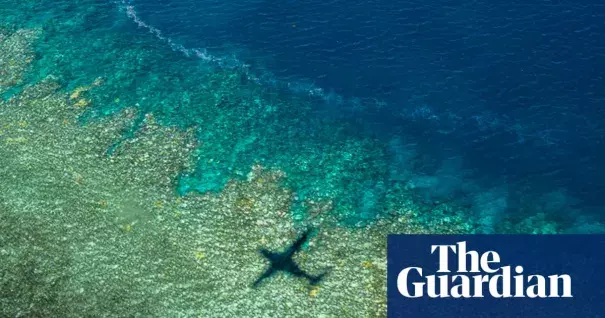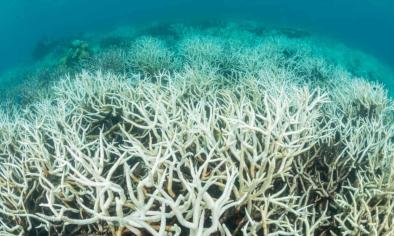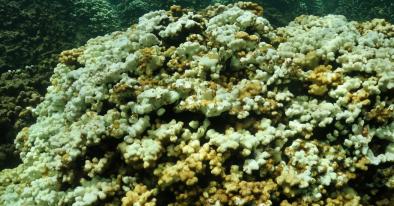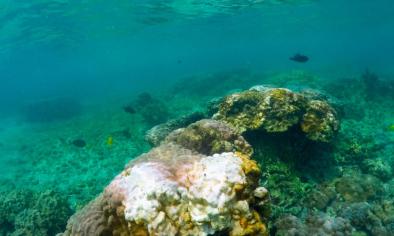Great Barrier Reef watchers anxiously await evidence of coral bleaching from aerial surveys

Climate Signals Summary: Climate change is increasing ocean temperatures, which makes coral bleaching events more frequent and severe.
Article Excerpt: The full impact of coral bleaching across the Great Barrier Reef will become clearer this week as aerial surveys of hundreds of reefs are completed in the bottom two thirds of the world’s biggest reef system.
...
From Monday the spotter plane will head south over reefs where satellite observations and temperature readings have shown corals are likely to have undergone higher levels of heat stress than those in the north.
Scientists fear those corals could be found to have been badly bleached, as they are less used to higher temperatures and had escaped major impacts in 2016 and 2017.
The chief scientist at the Great Barrier Reef Marine Park Authority, Dave Wachenfeld, told Guardian Australia that whatever the survey concluded, the current bleaching should sound “a very loud alarm bell” on the plight of the reef under global heating.
Heat stress has been building across the length of the reef this summer with many anecdotal reports from tourism operators, tourists and recreational diver of severe bleaching.
In February, average sea surface temperatures on the reef were 1.25C above normal and the highest on record going back to 1900. Scientists have said the world’s oceans are gathering heat due to accumulating levels of greenhouse gases in the atmosphere, mostly from burning fossil fuels.
Corals bleach if they sit in unusually hot water for too long. Survival from bleaching depends on how high and for how long temperatures get. Some species of corals have higher tolerance for heat than others.
...
Wachenfeld told Guardian Australia that whatever the final assessment was “these are still significant events that are sounding a very loud alarm bell about what’s happening to the reef in the face of climate change.”
He said there had been reports of “at least moderate bleaching” from Magnetic Island, near Townsville, and Heron Island, off Gladstone.
“Bleaching does not necessarily mean death and that some people do misunderstand that,” he said. “Yes, the reef is in trouble, but what that means is that it needs more help.”
Wachenfeld said whatever the final detailed assessment of the severity of this summer’s bleaching revealed, this needed to be seen in the context of the broader challenges the reef was facing, including the ongoing impacts from climate change.
Related Content





